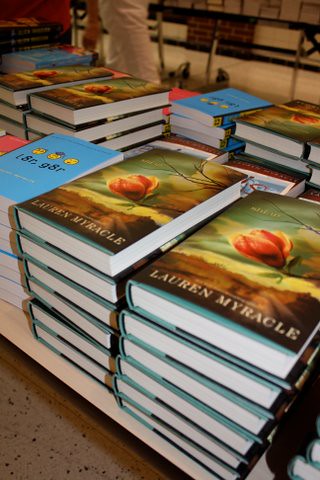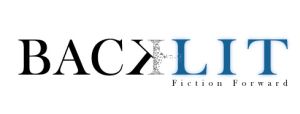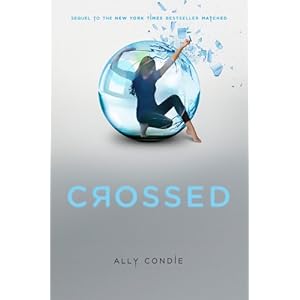
Book Reviews, Author Interviews, Literary Trends, and the Latest in Queer Culture.
Wednesday, November 30, 2011
A Tale of Two Professional Hats

Sunday, November 27, 2011
Cyber Monday! Shop at Independent Bookstores for Gender Bending Material

As holiday gift shopping shifts into full swing, a wide variety of new ideas appear on everyone's wish lists. Fancy electronics. Gift cards. Gender neutral picture books.
Saturday, November 26, 2011
The Dragon Lady Has Left the Building

Beloved young adult author, Anne McCaffrey, passed away on Monday. Many fans, readers, and writers were sad to see "The Dragon Lady" go. She was 85, and one of the most influential female voices in science fiction.
Friday, November 25, 2011
Book Review: Robert Ward's "Shedding Skin"

Robert Ward channeled a bit of future David Sedaris in his 1972 novel, Shedding Skin. In a series of comical but heartbreaking vignettes, Ward tells the story of a young man named Bobby, from adolescence through the first stages of adulthood. From the basement of a Baltimore home to the mountainside cabin of a crazy family named the Stumps to a hippie commune in Haight-Ashbury (in a world that reveals hints of queer identity), the protagonist truly discovers himself in the most ridiculous coming-of-age story I have ever read. As the author says in the book's final chapters, he "just wanted to find a good skin that [he] could wrap up in, be safe in. Now they are trying to sell [him] another new one - the radical skin." Amid drunken peers and 60s counterculture, Bobby forms a unique worldview.
Structure: 5 out of 5 stars
Ward sets up the perfect book. Chapters are short, powerful, humorous, and action-packed. While, at the beginning, the reader spends a lot of time wondering what is fiction and what is fact (i.e. was carrying the Taco sculpture a life event or a drug-induced fantasy?), the reader quickly pushes aside logic and just enjoys the tumultuous story.
Character: 4.5 out of 5 stars
Bobby is the sole narrator, which works out just fine. The reader doesn't become too attached to anyone else. The protagonist is good company, and he meets a crazy crew. Characters are introduced and then left by the side of the road (sometimes figuratively, sometimes literally). However, the reader rarely feels the loss of a new friend or lover because Ward so quickly brings in a new point of interest. Throughout the book, the author will reference a past character and the reader will remember with fond nostalgia about an earlier chapter, but then move forward, the same way the protagonist does. In this way, the story still feels whole.
My only wish was to hear more about Bobby's father in the book's conclusion. The author draws such powerful father-to-son parallels in the beginning, but then only touches on those points at the end. The reader walks away satisfied, but would have enjoyed an ending tie.
Voice: 5 out of 5 stars
The protagonist is a sensational storyteller. He is witty, charming, and mostly a nerd. From grade school onward, Bobby encounters influential people who he has determined are geniuses and therefore hold all of life's secrets. When they disappoint him, he moves on. The narrator is never dishonest and often overanalyzes situations in a way that is both endearing and a comfort.
Shedding Skin is simultaneously laugh out loud entertaining and historically intriguing. The reader watches a boy find his own two feet without any stereotypical YA drama. In fact, the novel is anything but predictable. Overall, a delightful read.
The book was published in 1972 by Harper & Row, and won the National Endowment for the Arts award in the same year.
Tuesday, November 22, 2011
Overcoming All Odds: Lauren Myracle

The dust has begun to settle on the National Book Awards scandal. Lauren Myracle was in the running, then pulled, and once Thanhha Lai won in the Young People's Literature category on Wednesday, few people have mentioned Myracle. But her novel, Shine, basked in the National Book Awards news coverage (a.k.a. free publicity), and as an author, Myracle is selling books more than ever before.
Monday, November 21, 2011
Occupational Hazards: Debt, Jobs, and Broomsticks

Something a little different today. Here is a short piece about one of my first jobs in the city:
I really needed a job. I was willing to take pretty much anything.
Chicago winter had hit me hard. I had an old car, a drafty apartment, and an empty bank account. The snow had begun the weekend I moved and hadn’t stopped. From a friend of a friend, I had picked up some temp part-time work for minimum wage, but I needed something else soon or I wasn’t going to make it through my first season in the city.
After my shift one night, a co-worker from a different department approached me to say she had an opening for a bizarre position at her other company. It wasn’t much: child wrangler meets house manager for student performances of "The Wizard of Oz."
The job was simple. Wait next to the theater door for a school bus. Then hop on, make some announcements, and wrestle the kids into a line. Also, the El train will be rolling overhead, making it impossible to shout instructions and causing many of the kids to scream. And it will likely be snowing or raining. Pay is $30 a day, before taxes.
“I’ll take it.”
My first day of work, two buses pulled up late, another got lost, one school brought a student with accessible needs and the elevator stopped working, and a first grader threw up in the lobby. I walked six blocks in the rain to bring the show materials back to the main office and then scrambled back into the storm to bum a train ride home. On the way, someone shouted to “move out of the way because I was so ugly I was stopping traffic.” Needless to say, I couldn’t believe I took this crazy job. I was cold, struggling with debt, and working ridiculous hours helping middle-schoolers learn what “single file line” means. To be honest, I was terrified. What if something happened to one of the kids on my watch? What if I caused a traffic accident with the buses? What if I was simply horrible at this position? For now, though, I didn’t have any other options.
Fast forward to Week #5. Back-to-back shows in the morning. In the span of twenty-five minutes, we needed to get 350 elementary school kids out of the theater, onto the correct buses, clear the street, coordinate the next round of schools, and usher 350 different children to their seats inside. With the help of the office staff, we made it just before the second show was slated to begin. Miracle of miracles. I knelt down to take a breather in the lobby.
The doors inside the theater opened and a preschooler walked out, crying. His chaperone couldn’t calm him down. The two of them circled the space and finally sat on the chairs in the corner. I walked over to say hello.
“He’s scared of the Wicked Witch,” the chaperone explained while the boy stared straight ahead, sniffling and avoiding eye contact.
I sat down next to him and said that I was scared of spiders.
He looked up and blinked. “Big spiders?” he asked, and wiped his runny nose on the sleeve of his jacket.
“All spiders. Big. Little. Slimy. Hairy. I’m scared of all kinds of spiders.”
The three of us sat in silence for a moment.
“Want to know a secret?” I whispered. The boy nodded, not quite sure if he trusted me. “Sometimes, I talk to spiders, too. Just to say hi. They never talk back, but I imagine what they would say anyway. Sometimes I think they might ask about what music I am listening to or what movie I like to watch on the weekends. I talk to lots of spiders. It makes them seem less scary. Does that make me weird?” He nodded.
From the side entrance, the actor playing the Wicked Witch came out and waited for his cue. In the florescent glow of the lobby lights, his green make-up looked pale instead of sickly, and he scratched his nose with the tip of his pointy hat. I grinned and motioned for him to come over.
The actor sat down on the carpet and inspected his broom. The boy’s lip quivered, but he didn’t move from his chair. The Wicked Witch continued to play with the bristles and the boy looked on. Inside the house, the piano tune to “We’re Off To See The Wizard” bled through the double doors. After a moment, the boy reached out to touch the broom, too. Both boys, the actor and the preschooler, rubbed the rough, itchy broom hairs in a rhythmic, almost therapeutic motion.
“Your nose looks like mine.” The boy felt the witch's black cape in the same rhythmic way with his fingertips.
The Wicked Witch stood up. “I’ll wave to you from the stage, OK?” The boy nodded and the actor ducked in to make his entrance. Without another question, the boy stood up and walked back inside, ready for whatever the play had in store.
That week, I got a phone call from the temp agency – they had found me a full-time job at a law firm answering phones. Business attire. Thirty minutes for lunch. Could I start Monday?
I looked outside at the snow and sleet and rambling El train, and respectfully declined the offer. The job at the theater was hardly a paycheck, but I liked the challenge. My duties were always different and sometimes daunting, and that was exactly what I wanted. There was no use being afraid of chaos when I loved the excitement. Soon enough, I’m sure I could fight my way out of debt. In the meantime, I had kids and broomsticks to wrangle.
Sunday, November 20, 2011
Jumping the YA Bandwagon

Since the recent explosion of many hits in the young adult fiction world, several publishers with mainly adult or children's reading material have stepped into the YA genre. Chicago-based publishing house Albert Whitman and Company (most famous for the Boxcar Children series) has been printing children's lit since 1919. This was the first year the company launched a young adult line, "Albert Whitman Teen," which included only two titles: Michael Ford's The Poisoned House and Anna Perera's Guantanamo Boy. Coming Spring 2012 will be Anna Perera's The Glass Collector and Deborah Blumenthal's The Lifeguard. The company says their list of YA titles are "smart, fearless books that explore unchartered territory in the world around teens and in their inner lives as well."
Friday, November 18, 2011
So It's Like "The Office"...But With Books?

Thursday, November 17, 2011
A Bittersweet Victory

The 2011 National Book Award Winners were announced last night. Audiences applauded the well-deserved wins:
Wednesday, November 16, 2011
Chapter One: "Call me Ishmael."

Tuesday, November 15, 2011
Read and Write in the World's Top Ten Literary Cities

Monday, November 14, 2011
Book Review: Kate Cann's "Consumed"

Sunday, November 13, 2011
Really Good Authors! Really Bad Titles

People tell you not to judge a book by its cover. Or, for that matter, to reject a book for its title. For many authors, though, creating a captivating title for a new novel is often one of the hardest steps in the writing process. And they are among good company.
Saturday, November 12, 2011
Sendak, Seuss, and Silverstein: Back in the Game

Who says childhood can't go on forever? New books by beloved authors Maurice Sendak, Dr. Seuss, and Shel Silverstein have recently been published. Of the three, only Sendak is around to see his newest book hit stores. But all three new reads have excited fans and been well received.
Friday, November 11, 2011
The Make It Safer Project

After Dan Savage announced the It Gets Better campaign to provide support for struggling queer youth, the media exploded with video responses. President Obama posted a video about feeling out of place growing up, Sarah Silverman provided a brief and angry clip explaining that bullying stems partly from influential injustices like anti-gay marriage laws and Don't Ask Don't Tell, and Neil Patrick Harris submitted a video encouraging kids that being an individual is way cooler than being average because it makes you unique. A mass of other celebrities, adults, and youth (both queer and not) rallied for It Gets Better. Ninth grader Amelia Roskin-Frazee has taken a slightly different approach.
Thursday, November 10, 2011
Book Review: Lucy Christopher's "Stolen"

Wednesday, November 9, 2011
E-Book Covers of the Future!

Electronic books are still a new-ish commodity, and already there are innovations on the horizon. UK children and YA publishing house Walker Books just announced their new plan for upcoming e-books: interactive book covers.
Tuesday, November 8, 2011
Online Publishing for Up and Coming Authors

In the new wave of e-books and self-publishing, authors are encouraged to not only hone their written word, but also begin to develop their publicity and marketing skills. Online publishing. Self-publishing. The new phenomenon doesn't seem like a trend - it's likely that it's here to stay. "A professional writer is a very small business of one person," said children's author Hazel Edwards (There's a Hippopotamus on Our Roof Eating Cake). "A solo trader in literary ideas. Those who are not buinsesslike are unlikely to survive."
Sunday, November 6, 2011
Book Review: Jessica Lee Anderson's "Border Crossing"

Saturday, November 5, 2011
Reviewing John Green's Debut Novel While Readers Await His Newest Book

"I go to seek the Great Perhaps." Last words by French writer, doctor, and philosopher Francois Rabelais, and the driving force for teenager Miles Halter.
Friday, November 4, 2011
Blog Post Spurs Instant Debate: Writer Tells Parents to Keep Their Kids in the Closet

The Houston Chronicle recently posted an article by Mommy blogger Kathleen McKinley, a self-professed Christian and conservative activist. McKinley had expressed her distain and horror over all the gay teen suicides as of late. Her advice? Tell queer kids not to come out.
Thursday, November 3, 2011
Boy Meets Boy: Adding Queer Texts To Mandatory School Reading

Everyone is familiar with required reading lists. It starts somewhere in elementary school with books like Out of the Dust and Number the Stars, and expands as time goes on into To Kill A Mockingbird, Romeo and Juliet, The Heart Is A Lonely Hunter, and Brave New World. Educational institutions try to introduce as many cultures, time periods, and ethnicities to growing adolescents. Young adults are required to read about diversity.
Wednesday, November 2, 2011
Enduring Middle School with the Occasional Wallflower

Tuesday, November 1, 2011
Matched By Force, Crossed By Choice
